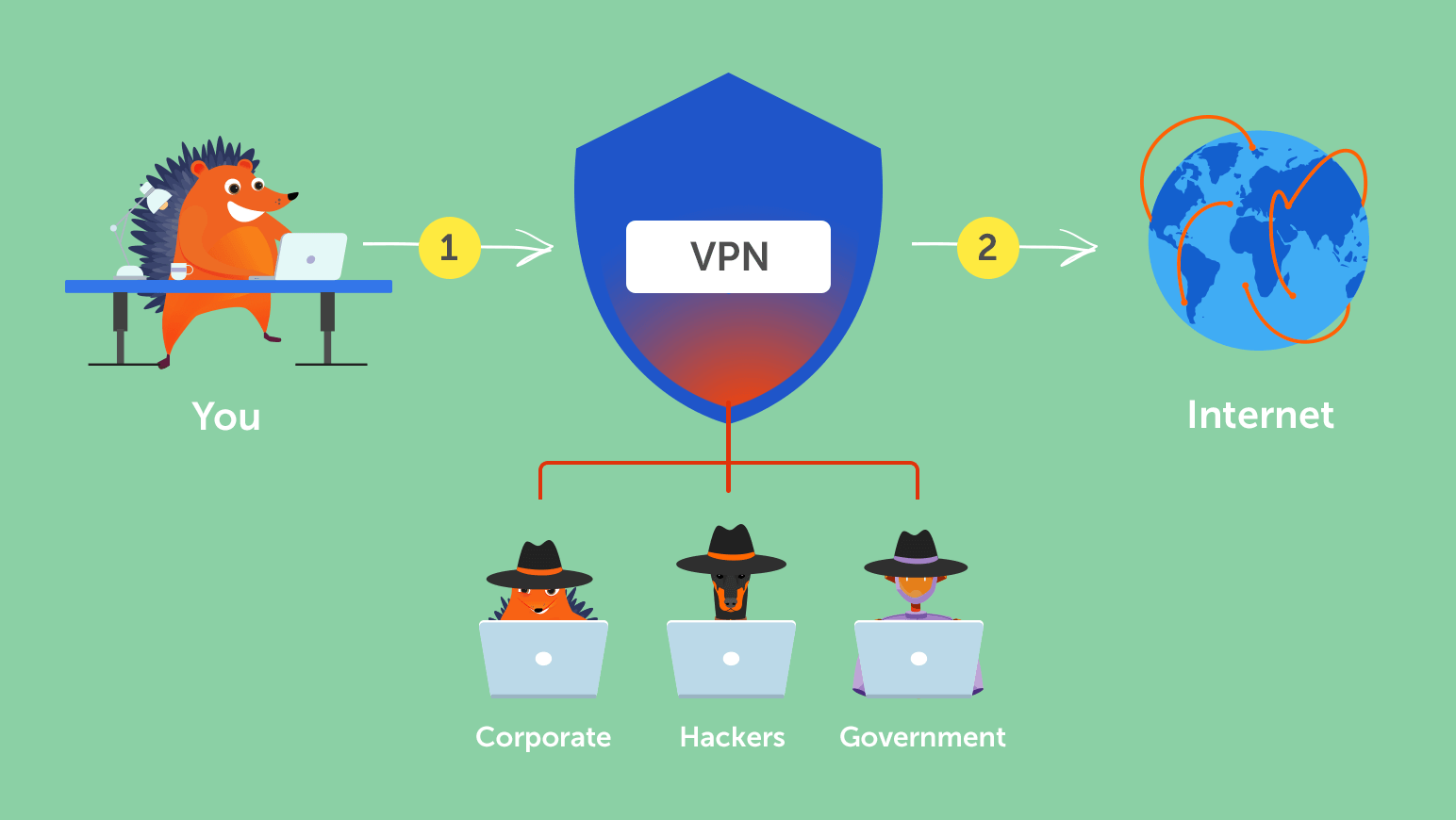These days, virtual private network (VPN) services are a popular topic, with internet privacy under attack from all sides. Businesses are attempting to collect more data on their customers to the point where they are becoming overbearing (want an example? As governments disagree on how to address the crisis, this, this, this, and this)
We’ve been using big products like Facebook, Google, Microsoft software, and others for years, but as technology advances, these businesses are squeezing users’ accounts for as much information as they can for commercial objectives.
A VPN is a service that uses your internet connection to establish an encrypted connection between your device and a VPN for Windows server.
Consider it a tunnel through a mountain, with your internet service provider (ISP) serving as the mountain, the VPN connection serving as the tunnel, and the internet serving as the exit.
Some people may believe that VPNs are a substitute for having an internet connection, however this is wrong.
VPNs were originally designed to connect corporate networks for more secure and convenient communication. VPN free service providers now work hard to forward all communication to the internet, despite government or ISP monitoring and, in some circumstances, mandated restriction.
A VPN’s primary goal is to establish a secure tunnel for your data to pass through before it reaches the internet. This, on the other hand, brings with it some additional perks, such as location spoofing.
While this may seem small to you, location spoofing has helped people circumvent geo-location obstacles on numerous occasions. Take, for example, China’s Great Firewall. The Chinese government tightly regulates the internet, and many of the online services that we take for granted are restricted in China. Users in China can only access Google and Facebook through the use of a VPN.
Benefits of Using a VPN
Access to geolocation services that have been prohibited (Netflix, Hulu, etc.)
As previously said, the primary goal of VPNs today is anonymity. VPNs efficiently protect all of your data activities by creating a secure tunnel from your device to their servers and encrypting the data flowing via that tunnel.
Browsing with the best free VPN for Windows has a number of benefits, including the privacy of your data, the ability to access sites that are blocked in Italy, and the opportunity to browse without having your data gathered for commercials and ads.
Why do you need a VPN?
VPN stands for virtual private network. One of the benefits of having this type of connection is the ability to connect to any server that is made available due to the connection’s several IP addresses. Nobody knows what websites they’re going to.
VPN stands for virtual private network. Another significant benefit is the ability to access all geographically inaccessible material. Consider this scenario: you’re traveling to China and need to access Facebook or YouTube for work. By using a VPN, you can bypass these restrictions and browse safely from wherever you are.
Anonymity
This implies that anyone attempting to learn about your online activities, such as the websites you frequent, will be unable to learn much. Many VPNs have agreed to accept untraceable payments, such as bitcoins and gift cards, because they are so focused on privacy.
Spoofing of a location
VPN services also provided location spoofing as a side advantage. Because VPN services have servers all over the world, connecting to one of them allows you to “spoof” your location as if it were the VPN server’s.

